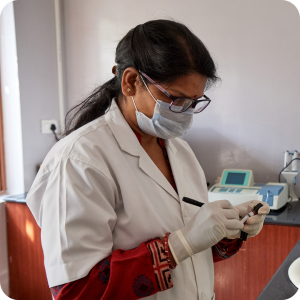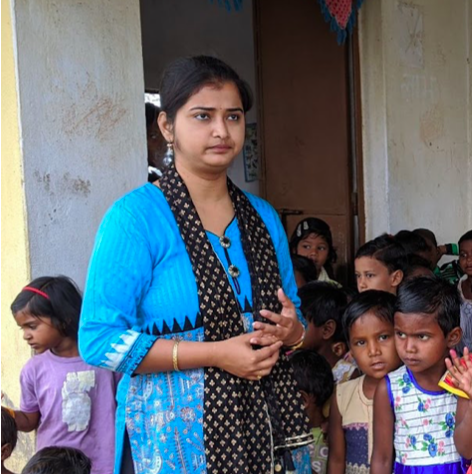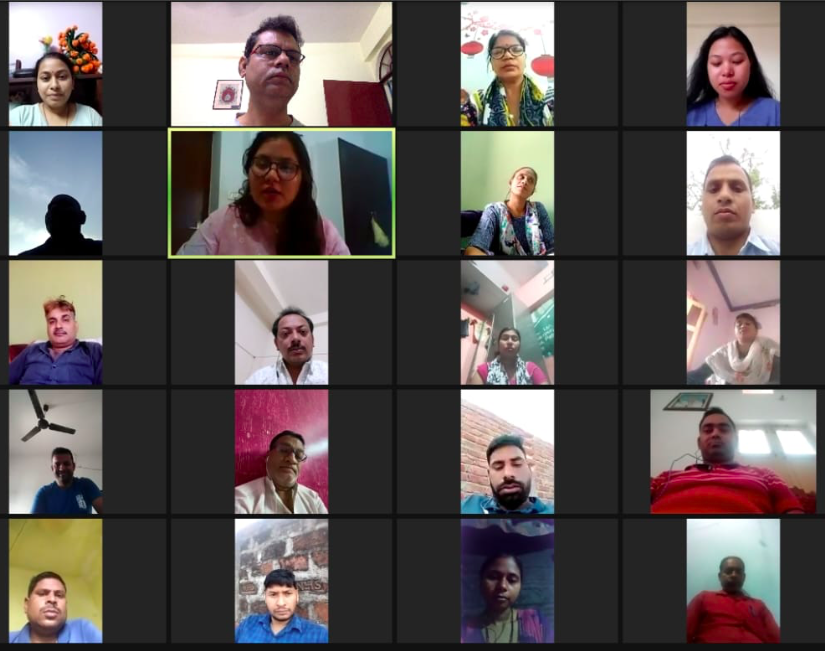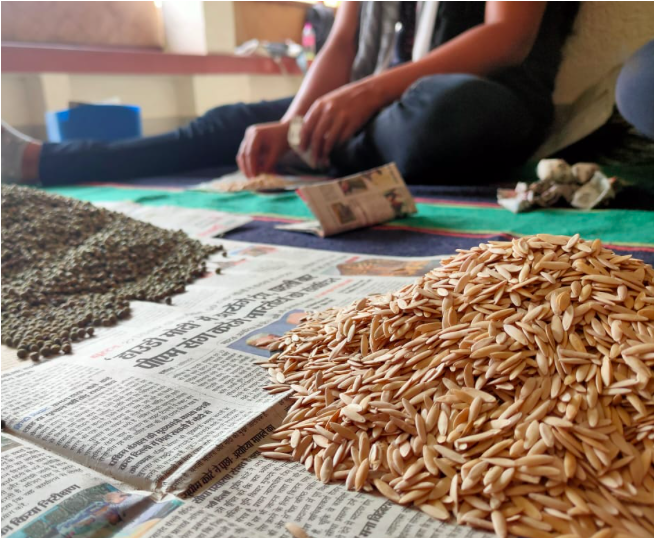The situation in India is worsening day by day as the second wave of coronavirus hits the country hard. The official death toll in India is over 222,000, a figure disputed by many journalists who claim that the actual death toll is ten times higher. The fate of its neighbor Nepal is intrinsically linked to that of India, as the two countries share an open border. While images of open-air cremations occupy the front pages of newspapers, Karuna’s teams in India and Nepal act every day to protect themselves and the people we help.
Putting a halt on our activities in India

Bihar – our main area of intervention – is one of the most affected Indian states with 441,375 people affected by the disease to date. In Jharkhand, where we are also active, the situation is similar with 213,414 people affected. Due to the danger our teams are exposed to on a daily basis and the restrictions imposed by the Indian government, we closed our clinic in Bodhgaya on April 14. Despite this event, Karuna’s medical staff continues to follow up on its chronically ill patients through telephone consultations and the establishment of a mobile pharmacy.

By order of the Bihar government, our education and vocational training centers as well as the Women and Child Development centers have also had to close. Moumita, women and child development program manager in Jharkhand, shares with us: “With the current situation, I am very stressed: it is difficult to see the dire state of our public health infrastructures, and the shortage of medicines in the stores. The price of basic products is increasing day by day. I am looking forward to the day when we will talk about a covid-free India. We are waiting to get back our freedom, our life.”
The rest of our development activities in the rural villages can continue thanks to our local intermediaries who work on a daily basis and as close as possible to the beneficiaries, with the utmost health precautions. Recently, they have completed the construction of four ponds and successfully managed several seed distributions to support local farmers.
Protecting our staff from the epidemic
While some of our Indian staff have tested covid positive, the majority of our medical teams have now received their first injection of the Covid vaccine.
We have asked all of our staff from outside of Bihar to return home, as our priority is for them to be with their families in this emergency situation. Lakshmi, Women and Child Development Program Manager in Bihar since 2018, shares her experience of working from home, “This month I lost 3 people in my family in a matter of weeks. This has devastated all of us. Working from home in this situation can be helpful for many people, but for me, it is an added responsibility as a homemaker.”

The physical and emotional health of our employees is a priority ! Workshops about stress management and mental health were held, as well as special times for all staff to share their difficulties and tensions. “What I really enjoyed about our virtual meetings was hearing from colleagues tested positive for Covid-19. Having them join us for these sharing moments, and talking about their health has allowed everyone to express words of encouragement and better understand the symptoms of the disease. It really helped to bond and support each other” – Anindita, an intern and a student in Agricultural, Rural and Tribal Development.
Nepal’s shared destiny is worrisome

On April 29, 2021, local authorities in Nepal announced a 15-day lockdown in the Kathmandu Valley, the most populated and affected area in Nepal. Over the past week, the rate of Covid infection has steadily increased in Nepal, with Kathmandu – the center of all activity in the country – accounting for the highest number of cases. Shalav, Karuna’s director of operations in Nepal, tells us :
We have to prepare for another long lockdown, maybe two months. Our fate in Nepal is linked to what happens in India, as we share an open border and many Nepalese work in India and frequently return to Nepal. Our supply of vaccines and oxygen is also heavily dependent on India.

Our field activities in the districts where we operate – Sindhuli, Kavre and Dhading – are conducted by local employees. This proximity allows us to guarantee the continuity of the majority of our activities. One reassuring piece of news is that few cases of Covid are recorded in the remote rural villages where we operate, as few people are moving around in these areas. While we wait for a return to normalcy, our nursery in Ruby Valley remains open and distributes seedlings to families to encourage family farming; our staff in Sindhuli District remotely moderates local committees for early childhood development, solar lighting equipment and construction work on two schools also continues.
Shalav shares his vision for the next few weeks: “This lockdown will be an opportunity for Karuna to take stock of the last 6 months, assess our strengths and weaknesses and improve our efficiency. The health and safety of our staff is our highest priority. They must not take unnecessary risks, and we provide them with the means to maintain safe working conditions. At this time, none of our employees in Nepal have contracted Covid. We plan to follow local rules while supporting the villages we help with caution.”
We are adapting our programs to the situation, like setting up medical consultations by phone and mobile pharmacy to help chronic and remote patients. As we reach out to other local associations, Karuna staffs in India and Nepal are preparing to develop a new phase of our Covid emergency plan, initiated in May 2020.
Our teams maintain their commitment in the field and are designing new solutions adapted to the reality of the populations we help.

